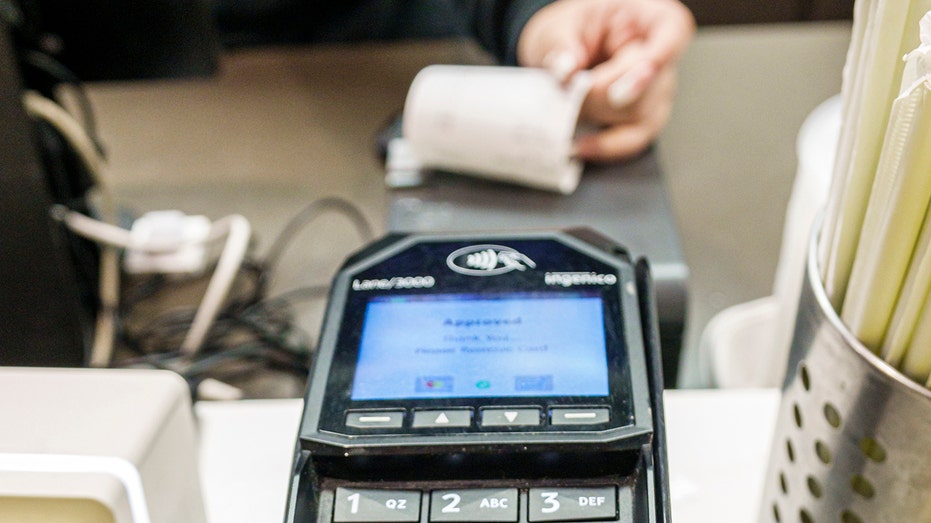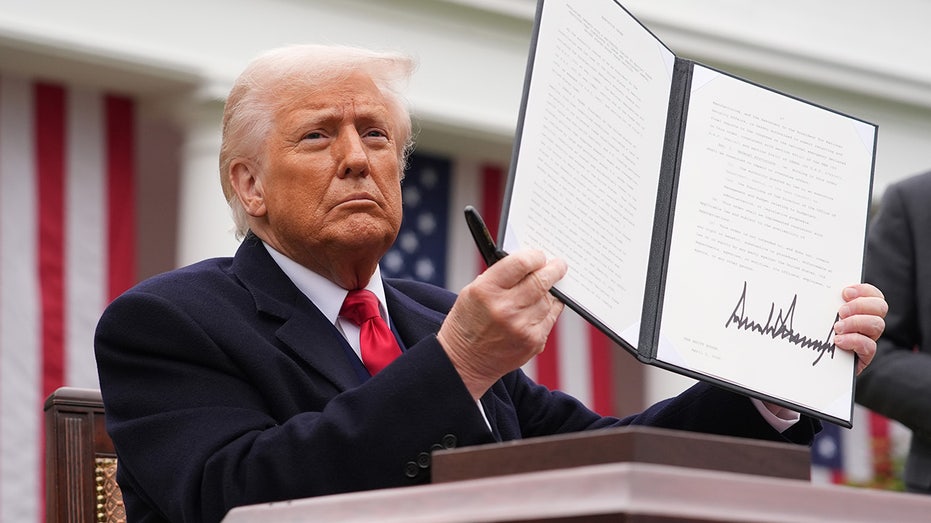How to prepare your wallet as tariffs take effect
Trump announced his latest plan for tariffs Wednesday afternoon
These tariffs are 'different, a big deal, larger' for 'everyone': Gerald Storch
Storch Advisors CEO and former Toys'R'Us and Target executive Gerald Storch urges swift negotiations on tariffs and says 'it's time to take action' on tax cuts and deregulation.
President Donald Trump's tariffs on U.S. trading partners are leading stocks on Wall Street to tumble, and concerns are rising about their effect on the broader economy.
However, experts say it is still uncertain how they will affect consumers' wallets. Economists warn that levying taxes on imported goods will lead to price increases for consumers that could push inflation higher and complicate the Federal Reserve's efforts to stabilize the pace of price growth.
No matter how these tariffs play out, there are still ways consumers can feel more prepared, according to Matt Schulz, LendingTree's chief consumer finance analyst.

There are still ways consumers can feel more prepared for tariffs, according to Matt Schulz, LendingTree's chief consumer finance analyst. (iStock / iStock)
STELLANTIS PAUSES SOME MEXICO, CANADA PRODUCTION, TEMPORARILY LAYS OFF 900 US WORKERS DUE TO TARIFFS
"People make bad decisions in all aspects of life when they're rushed or scared, and money is no exception," Schulz said. "What matters most is to not let your fears and uncertainty push you to act too quickly."
While he acknowledged that prices are "likely to rise," he said "failing to do your homework and comparison shop can make an already challenging situation that much worse."
Consumers can prioritize paying off high-interest debt. The money put toward paying down credit card debt, for instance, is taking away from "putting food on the table, building an emergency fund or reaching other financial goals," Schulz said.
Using a 0% balance transfer credit card or low-interest personal loans to consolidate those debts and lower the interest can be a "huge first step" in tackling this problem.
Schulz also suggested focusing on continuing to build an emergency fund. While consumers should continue to pay down their debt, it's important to continue boosting their savings.
"It may take a little longer and cost a little more to pay off that debt, but once you’ve paid it off, having some savings can help you avoid going right back into debt," according to Schulz.

Consumers can prioritize paying off high-interest debt, LendingTree's Matt Schulz told FOX Business. (Jeffrey Greenberg/Universal Images Group via Getty Images / Getty Images)
It's also important to stick to long-term financial goals, regardless of the uncertainty with tariffs, he said. For instance, one still needs to invest in retirement or save money to buy a home, pay for a child's college education or pay for a wedding, Schulz said.
He also recommended consumers seek support from a financial advisor or accredited nonprofit credit counselor to ease concerns about the financial uncertainty tied to tariffs.
Trump touted his sweeping tariff plan at a "Make America Wealthy Again" event, arguing it will restore the American dream and bolster jobs for U.S. workers.

President Donald Trump displays a signed executive order imposing tariffs on imported goods during a "Make America Wealthy Again" trade announcement event in the Rose Garden at the White House April 2. (Andrew Harnik/Getty Images / Getty Images)
GET FOX BUSINESS ON THE GO BY CLICKING HERE
China announced Friday it will impose a 34% tariff on the U.S., just days after Trump unveiled the same amount against Beijing in his reciprocal tariff plan.
The 34% tariffs announced against China Wednesday are in addition to the 20% tariffs already imposed against the country by the Trump administration.
FOX Business' Eric Revell and Greg Norman contributed to this report.





















